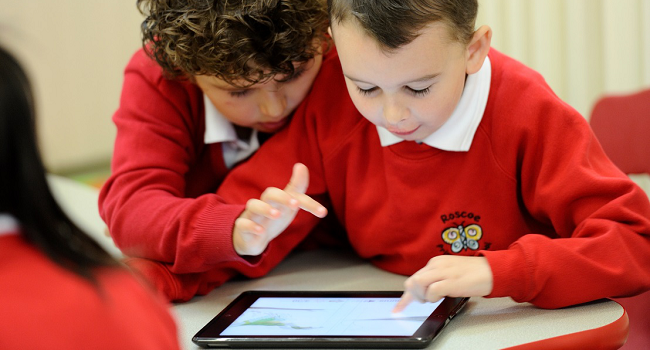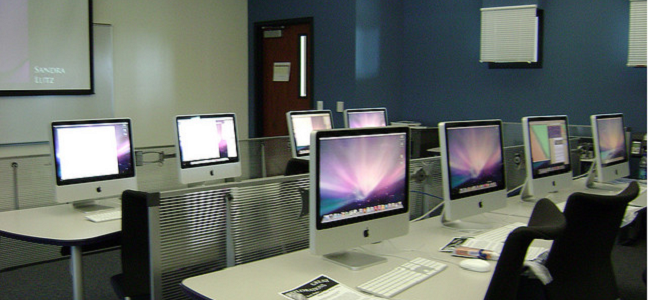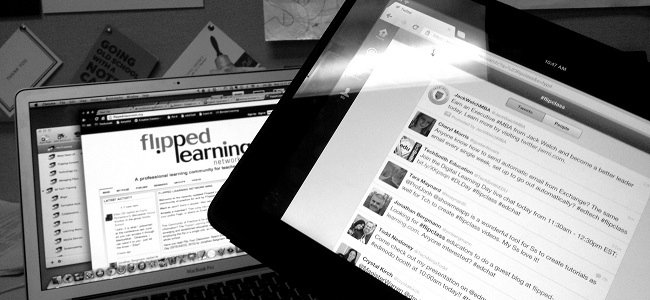With 30th November marking Computer Security Day, it’s important for schools to know how to fully secure themselves against cyber-threats. Alan Mackenzie, a veteran e-safety consultant, talks us through the top 10 points school staff need to consider when it comes to staying e-safe.

Security has been a hot topic this last couple of weeks, with the most reported story being that of the website hosting live webcam streams of hundreds of devices whose account details had been hacked. The word ‘hacked’ is misleading in this respect, as it suggests a certain amount of effort by the perpetrators, however one could assume that many (all?) of those devices had been left at their default settings, including username and password.
Earlier this year, Roscoe Primary School headteacher Amanda Anders spoke at one of our events, telling attendees how she brought her school out of special measures. Here, she goes into detail about the specific technology that allowed her and her colleagues to bring the school from ‘special measures’ to ‘good’ in four years.

In 2009 Roscoe Primary School, Liverpool was placed in Special Measures. ICT was considered to be inadequate, and in November 2010 an Ofsted monitoring report stated: “Pupils’ attainment and achievement in Information and Communication Technology (ICT) is inconsistent and does not equip them well enough for the next stage of their education and life beyond school. The school realises that there is now an urgent need to take decisive action to address underachievement in ICT.”
It’s a brave new world for education, particularly with the growing popularity of portable devices and flipped learning. Teacher and digital strategist Jane Basnett gives her finest tips on how a school can fully embrace the future.

A digital strategy must take into account what makes an excellent lesson, and will then plan to ensure that teachers make use of technology in a creative and meaningful way that enriches the teaching. Successful use of technology in the classroom goes hand-in-hand with other good teaching techniques, all of which can be enhanced by technology. The two (technology and traditional teaching methods) are not mutually exclusive. There must be a blend of the two strands in order to bring about successful and effective teaching. Schools will need to spend time training teachers to use the latest digital tools in conjunction with relevant methodologies to ensure ultimate success.
The more technology that is introduced into education, the more discussions are had regarding accessibility and usage. Edtech expert Nicole Ponsford takes a look at how the Digital Divide and issues surrounding screen-time can overlap.

What is the Digital Divide? Wikipedia describes it as: “an economic and social inequality according to categories of persons in a given population in their access to, use of, or knowledge of information and communication technologies (ICT).” Or you could say that the social-economic or demographic differences in access to technology is creating a gap in what skills people have and therefore what opportunities they may have in the future. What we know in schools is ‘the gap’ in attainment and progress.
If you’re a teacher working in the UK, there’s a good chance that you use a tablet as part of your work. While we originally set out to publish an article on the different tablet devices available to educators, the response to our questions was so Apple-oriented, we’ll begin with iPads for now.

This article is comprised of the opinions of ten different education professionals, either teachers or former teachers. Twitter profiles are linked to the first use of a contributor’s name.
We cover a lot of edtech trends, but which ones are here to stay the course? Iowa-based English teacher turned technology integration specialist Jarod Bormann gives his top five trends that are really leaving their mark in teaching.

If you are one with your ear to ground, I’m sure you have a pulse already on what is transforming instruction in education. As a classroom teacher, I thought I did too. But since changing my job to Instructional Technology, I have had the opportunity to work with educators in varying districts. I have also had the opportunity to expand my understanding by attending more tech conferences. These new experiences have given me a better outlook on what edtech trends are truly shaping education, whereas my prior knowledge mainly came from Twitter.
Adopting tablets into your school is a big leap. Taking this into account, education innovators Trilby will be holding a 1:1 learning-oriented event to explore the teaching possibilities.

On 20th October in Birmingham, edtech experts Trilby will be holding a holding a free workshop-luncheon for school leaders, heads of computing and teachers wanting to know more about 1:1 learning. The company are keen to show educators what can be achieved through learning, sharing and showcasing student work via tablets, as well as how a school can properly implement this technology. Those wishing to attend this free event are asked to RSVP to [email protected] by Monday 13th October.
The writing is already on the wall, so its not about becoming an eco warrior for me, it's about taking the opportunity to use technology to up skill those students currently schooling in the rainforest. Oil boom towns such as Coca mean young people can quickly find themselves pulled into the drugs or prostitution trade. So the need for an education is extremely important for these young people.
Often enough, having the device is only the beginning of the opportunity. Pittsburgh-based writer Kayla Matthews gives her top seven for your perusal.

It's the 21st century and our new generation of learners is extremely tech-savvy. With a wealth of information literally at their fingertips, why not gear them in the right direction and make them life-long learners? After all, learning isn't something that just happens inside the classroom. In fact, students should be expanding their minds and challenging their logic and reasoning skills constantly. What better way to do it than through their mobile device?
In 1994 I started my teaching career. I am a modern languages teacher. I love languages, and I love inspiring my pupils to learn about other languages and cultures. When I first entered the classroom all those years ago, my main aim was to be a good teacher. I had not given much thought to how I was going to achieve my aim, or indeed what it even meant to be a good teacher. I was young, enthusiastic, full of energy and positive. Surely, with these attributes, I would achieve my goal, no matter how idealistic it may have seemed?

A community-driven platform for showcasing the latest innovations and voices in schools
Pioneer House
North Road
Ellesmere Port
CH65 1AD
United Kingdom